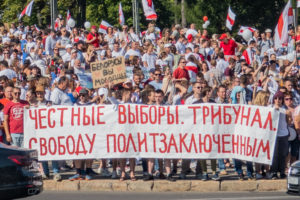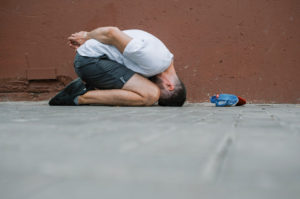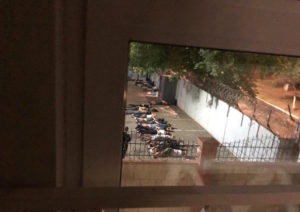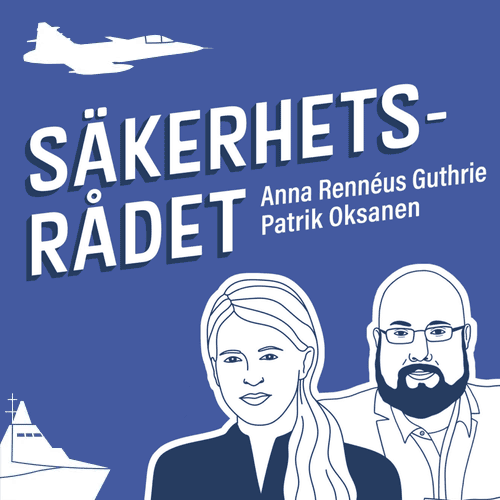This article is part of the Let The World Hear Project, which is a collaboration between Stockholm Free World Forum’s webzine Säkerhetsrådet and a number of Belarusian volunteers. Together we have gathered stories from victims of the dictatorship regime in 2020. The world must know what happened.
Read more about the project here.
This is the story of 37-year-old photographer Aleksey from Minsk, who was arrested on 10 August 2020 during a walk around his neighborhood.

Protests in Minsk. Photo: Wikimedia
The Monday evening walk or how my “journey” began
I left my apartment at 6 p.m. on 10 August to go for a walk. I live in the city centre and have a couple of favorite places. Although I realized by then that they might have been cordoned off with police vans, I wanted to see what the city looked like after the election night. When I reached the hotel “Planet”, a girl approached and warned me that the police were arresting everyone with a white ribbon around their wrist. I said, “Thanks for the warning, but I don’t wear one”, and kept on walking. About 100 metres away I noticed police vans, as well as a group of cyclists. I didn’t think that they would arrest the cyclists. But they did.
I had a bottle of water in one hand. I probably caught their attention the moment I lifted my hand. I was also wearing a white t-shirt [the colour of the opposition]. Two riot policemen started to follow me. I had nothing to hide, so I slowly went towards my house. I called another friend on purpose to signal that I might get into trouble. The policemen – two young men in masks – asked what I was doing here. I explained that I live nearby and had gone out for a walk. I showed them my passport, the pages with my picture and address. They were almost ready to let me go, but decided to double-check with their senior officer. He said, “Take him here”. I asked them what reasons they had for detaining me. He replied, “We have a lead. You look like someone we are looking for”.
The senior officer looked at me and told the young policemen to take me across the street to another van. I don’t remember any names as I was already getting nervous. I knew this wouldn’t end well. When we got to the other side of the street, another man in police uniform grabbed me and yelled, “Show us your phone”. Within the next moment I was thrown in a police van and told to keep my head down. At the same time, I got punched in my right flank. The doors closed and I realized that “the journey” had begun.
“They are human beings just like you and me. They just made the choice to stay in the forces”
In a few minutes there were five of us in the van. When I lifted my eyes and noticed a camera, I realized it was for my best to do as they told me. One of my friend’s stories helped me. He is an artist and a photographer who works on documentaries. When he was 26, he made the choice to do military service with the special forces troops. His stories, manner and style of talking reminded me of what I heard while being inside the police van. Back in 2014 when the World Hockey Championship was hosted in Minsk, we were walking by the fan zone on the championship’s final day. Once the match was over, members of the special police force were shouting at people to leave the square. I remember how he could confront them with a harsh voice, “Comrade Sergeant, in which military base did you do your service? Let us get some beer and then we’ll leave”. I wondered back then why he wasn’t afraid to approach them like that. He replied, “They are human beings just like you and me. They just made the choice to stay in the forces”.
The moment I was thrown inside the police van, I felt like it was their professional rudeness, that they needed that. It is a professional mask, like when you’re at McDonald’s and asked with a smile, “How may I help you today?”. It’s the same here, just the other way around.
Twenty minutes later we stopped in a yard. We were transferred to another van, constantly accompanied by the sound of smashing truncheons and instructions to “lie face down!” or “move faster!”. I was impressed by how and in which poses we were transported. I didn’t know that this was the way things worked.
We were taken to the RUVD. There, one by one, we were thrown out of the van and my leg was smashed with a truncheon. Two minutes later I found myself kneeling with my head touching the floor; they were putting us in lines across the wall.
“Finally, an adequate normal guy … Finally, a normal batch”
I heard constant beating. I realized that the more precise I would follow their commands, the safer my body would be. Not every person was able to get down on their knees easily. Those who refused were brutally beaten. Every transfer to another van was preceded by kneeling. It doesn’t require much effort to get someone on their knees. In the very beginning I had to draw a distinguished line between my dignity and the temporary reality. It was like a game where they [the authorities] were dictating the rules. The younger a policeman was, the thinner was their professional “mask” of aggressiveness, the older the thicker the mask was.
We were 50 people with our hands tied behind our backs. We spent at least one hour in that position. My legs started to ache. At this point a story of another friend of mine helped. He told me that once you start feeling pain it’s possible to switch your focus to something else. Pain is just a signal to our brain. It worked.
One by one we were taken to an investigator. The situation in itself was chaotic. I was thrown in a room by an officer who then joined the other three officers already sitting in the room. I was ordered to kneel. So, there were four investigators sitting at the tables and me on my knees in the middle. There I understood that they didn’t know what to do and how to do it. One of them yelled, “Let’s make a conveyor – put tables and get people in here one by one”, interrupted by another policeman who had just come in asking for something, them all disagreeing, getting angry and screaming at each other. I got tired of being on the knees with my head down, so I lifted the upper part of the body, sat on my bottom and asked whether it was ok to do so. It was accepted. Half an hour passed by. While I was sitting there, the rest of the group remained on their knees in the courtyard. It seemed like we were the first batch of detainees for the recently-changed shift of the officers.
I managed to make eye contact with one of the investigators and asked what consequences I would have to face. “Most likely, 15 days of arrest”. They were, for some reason, unable to write down my statement and kept asking for my home address. It was a tragic situation, but at the same time also comical. The captain came in and saw me sitting on the floor stretching my legs. He told me to immediately get back on my knees. He also said, “Finally, an adequate normal guy. Yesterday there were many with tattoos and stuff. Finally, a normal batch”. I don’t know why – maybe they had gotten tired after the day before – but they would only beat those who disobeyed their orders.
I was given my statement to sign. But I didn’t agree with everything that was written there. For example, I hadn’t taken part in a demonstration nor had I been screaming “Long live Belarus”. The investigator said that I could write down that I disagreed. There were at least ten people who were able to read their statement and either agree or disagree. Later when we were in jail I realized that very few of us had been given statements. Most of the group had neither read nor signed anything.
Another flashback about masks. A young officer had to make sure that we “behaved” after our fingerprints had been taken. We were waiting in a corridor, lined up along the wall. The officer told me to move closer to the wall. I guess I moved too slow, as I got punched in the head. But all these scenes made me think that the young officer was just trying to show off to his supervisor. When I asked to go to the toilet, I got to hear all the ready-made phrases: “You should have used the toilet at home!” ”How old are you?” ”How much did you get paid?” I simply stopped listening. But when he finally took me to the toilet to wash my hands before taking the fingerprints, he whispered to me, “Wait a little, soon you can pee”. I couldn’t relax in order to pee, so he started to turn the water on and off. When I was done, he asked me in a calm normal voice whether it had gone well. He gave me soap to wash my hands before taking fingerprints. As soon as I turned on the water, he went off again with another, much harsher voice “Where do you work? How much did you get paid? Why did you go to the demonstration? What freedoms do you need?” When I looked him in the eyes I could see that it was not him speaking, but his mask. His eyes were saying, “Here is the soap, wash your hands”. Less experienced police officers acted as if they needed to show their supervisors that they could be aggressive. At least, it seemed so to me.
I was taken outside and told again to lay on the ground with my face down and hands behind my back, as well as to spread my legs. I asked whether I could put my jacket on first, as I was in a t-shirt and shorts. It was ok. The officer was screaming and cursing, “Put it on quicker!”, while whispering to me at the same time, “Please, quicker”.
Like Praying I, II and III
We got our belongings back. I guess it was around 8 p.m. We were still lying in the same position. Around midnight new vans arrived, as well as new riot police. Clamp bands had been put on our wrists before the riot police arrived. They started to guard us and introduced some unreasonable charges; for instance. if someone moved their shoulders they got beaten with truncheons. While lying on the ground I was getting cold, so I came up with the idea to slightly lift my tailbone, count to 60 and put it down again. I recalled an artwork by Wolfgang Tillmans from 1994 – Like Praying I and II.

Like Praying II by Wolfgang Tillmans (1994).
Wolfgang Tillmans explored the word “praying” when used in a religious context as well as in the pose of vulnerability. As described by art critic Emily Browne: “Like Praying I and II are communicating via body language that they are either in a meditative state of praying or a highly anxious state of panic. It really could go either way. The fact that one of them is clothed and another is completely naked only seems to complicate the message of the work. The title is also a point of confusion. The words ’like praying’ seem to want to be followed by the words, ’but different’.”
I kept the picture in my mind and it helped me not to get into despair.

Like Praying III by Aleksey – an homage to Tillmans (2020)
We lay like this until 4 a.m. Throughout the whole night we could hear grenades and rubber bullets being fired. People kept asking for permission to turn around. Some were allowed, some weren’t. I asked to be taken to the toilet. They were screaming that yesterday’s guys had “pissed and shat themselves”. I still kept on asking. A policeman asked me whether I was able to take my hands out of the clamp myself – I was – and then without any drama he took me to the toilet. When we had to pass by the other policemen, I was told to keep my head down, but the rest of the time I could walk normally.
At 4 a.m. they suddenly moved us to an assembly hall where we were told to sit on chairs. They took in another batch of newly arrested people. They were severely beaten. We got about five minutes of almost rest while we were told to sit with our heads down to our knees. This changed as soon as a Riot Police Captain came in. Everyone became silent immediately. My head wasn’t positioned low enough, so I received a heavy smash on it. I heard noises the whole week after. It was this moment when I finally got afraid.
There was a guy in a yellow t-shirt whom they hadn’t managed to arrest on 9 August, but did a day later. They took him to a room next to the assembly hall. It was a total shit show. He was told to unlock his phone. There, they found chats, pictures, videos, and after that – smashes and screams every ten seconds. He was asked who had paid him. The more questions were left without answers, the more violent they became. Another policeman ran into the room and yelled, “Can you hear what’s going on next door? Now we will hear what you all have to say, one by one”. He [the guy in the yellow t-shirt] was in there for maybe another 15 minutes. Then all of a sudden they took everyone downstairs to the courtyard. They said they would take us somewhere else. It was 5 a.m.
While we were waiting we could constantly hear people being beaten somewhere. And screams from time to time. They transferred us to another RUVD in a different part of the city. There were 15-20 people in each van that was made for 8 people. The RUVD had a huge sports hall. They said that we would be kept there for the night. Those who disapproved would be taken outside in order to stay in the yard. It wasn’t too bad. A wooden floor and lots of space. We were placed on the floor with some space between each other. One policeman said, “Get down, have some rest, raise your hand if you need some water, we have plenty of water, and raise your hand if you need to go to the toilet”. That was it.
We were lying on our backs with clams around our wrists. It felt uneasy, with ten big guys walking around keeping an eye on us. They also had a game: if someone’s phone rang, they took it, asked for the password and looked through the pictures and videos. They asked for mine as well and thank god the battery had already died.

The view of the inner yard of the RUVD. Photo: Nexta
Expressions of solidarity, creativity and support in Zhodzina
11 a.m. A head count and the same procedure all over again. One riot police officer per person, heads down, thrown in a van, kneeling down. We were eleven people. Some of them had been in this situation before. They were looking through the window and kept making guesses where we were heading. “Either to another RUVD, or maybe Akrestina, or Zhodzina – soon we’ll be able to guess”. Later it became clear that we were going to Zhodzina. In the van there were at least 3 “experienced” people. There were also younger guys, about 19 years old, and they were scared. The experienced ones kept saying:
“Don’t worry, guys, Zhodzina is fine. They don’t like us from Minsk there, so we will be beaten.”
“What can we do in order not to be beaten?”
“Simply don’t ask to not be beaten.”
They were either joking or really had the experience. I was pretty calm, I guess, because I didn’t have any expectations or previous experience of imprisonment. I didn’t know about the situation in Akrestina (where the most brutal treatment of prisoners during the crackdown occured). If I knew, I would have panicked for sure.
On our way to Zhodzina we found out that one of the younger guys had a phone. He was scrolling and deleting messages, pictures and videos. Each one of us was able to send a message to our families to let them know that we were on the way to Zhodzina.
We arrived at Zhodzina at around 5 p.m. Me and another guy were released at 9 p.m. on the next day – the others had to stay longer. Tattoos, flags and coats of arms were, of course, targets for the police. One guy, just like me, lived three minutes away from where he had been arrested. He had been cycling towards a building material store. He said he wouldn’t even try to get his bike back, as he didn’t want to deal with the police again.
In Zhodzina there was another nice moment. There was a button inside the cells. Once pushed, it lit up red and made a sound on the outside of the cell. While waiting in the corridor, I heard the sound “bi-bi-bi-bi-bib-bi-bi-bi-bib-le-ve-be-la-rus-le-ve-be-la-rus”. A guard’s reaction was “Well, bi-bi there, it’s not going to change anything. Let’s see what happens when you’ve given up”. A guy was giving those signals right before his release, and I felt grateful for that. He gave me some hope, especially, after such a night. It really raised our spirits.
Interesting to note that while sitting in the sports hall, the detainees were asked not to keep their head down, but rather to keep straight. After being constantly exposed to humiliating commands including, “Head down, face down, on your knees”, those words get hammered into your head, your inner voice keeps repeating them even in complete silence. After a while you start putting your head down even if you aren’t told to do so. However, I tried my best to keep my head straight.
There were twelve of us in the Zhodzina cell – and four beds. To me, after all the other “stations”, Zhodzina felt like a resort. They said it shouldn’t be like this: twelve people in one cell was outrageous, a flagrant violation of the legal code. Still, due to the support and solidarity of my cellmates, I felt protected, and some tension dissipated.
The end of my “journey”
A few hours later an officer came into our cell and told us to “head to the exit with all our belongings” – as if we had any. On the way to the exit we passed, one by one, through the office of a major, dressed in a blue uniform.
“Aleksey, you are an educated young man… with a technical background… a sensible young man… Why did you participate in the protests?
“I didn’t. I live nearby.”
“What do you mean by living nearby? You’ve certainly read everything on the Internet, and seen everything through the windows.”
“Of course I had. What should I have done? Have locked myself indoors?”
“Ok”, he said and gave me a document.
I looked through it. It was a warning with possible consequences if I would ever again participate in unsanctioned protests. Sign here and there, then collect your things and you’re free to go. That’s it. I was surprised that we could have our belongings back. They had been stored in three big rooms, all located in different buildings.
It is a huge jail. It took several minutes to walk from one room to another. We were accompanied by soldiers of the internal military forces, who were quite nice people. I managed to talk to one of them as I was curious what all this had been about, whether we would have another court hearing, new arrests, fines, and so on. He said that there had been a hearing, that we had received a warning and that we should just consider the whole thing a nightmare.
Outside the Zhodzina prison a lot of people were waiting in hope to find their relatives. I was approached by many who had pictures on their phones wondering, “Have you seen him or her?” – “Sorry, I don’t remember”. There were plenty of people offering help and willing to give me a lift to Minsk. I remember a girl who was all covered in blood and scared of going back to Minsk, as she and her husband had been dragged out of their car and beaten by police. Her husband had been missing since then, presumably taken to Zhodzina.
I was able to charge my phone and call my friends so that they could give me a lift home. We took another guy with us who had been first taken to Akrestina and then moved to Zhodzina. He told us about all the horrible things he had heard of and experienced in Akrestina.
“Dear women: how important it is what you are doing right now”
I don’t think that I have been deeply traumatized by this experience. I used to have the uncomfortable feeling of looking into the eyes of, and passing by, people wearing uniforms – I haven’t felt any new dimension of that emotion or fear. However, I am still worried about the people who were detained and experienced Akrestina.
I now know how the system works on the inside. Experiencing the physical suffering that people might have experienced in 2006, 2010, 2017 on my own body has given me a thorough understanding of the situation.
After being released, I woke up the next day around midday. At first I was in shock, wondering what it all had been about and what for. I felt despair and hopelessness. Then I heard noise outside. I opened the window and saw about 40 women with flowers and people clapping hands. It was like a remedy for my soul. I cried and thought, “Dear women: how important it is what you are doing right now”. That is all I have to tell.
The story was originally told to Nadia C and translated by Marina K.
